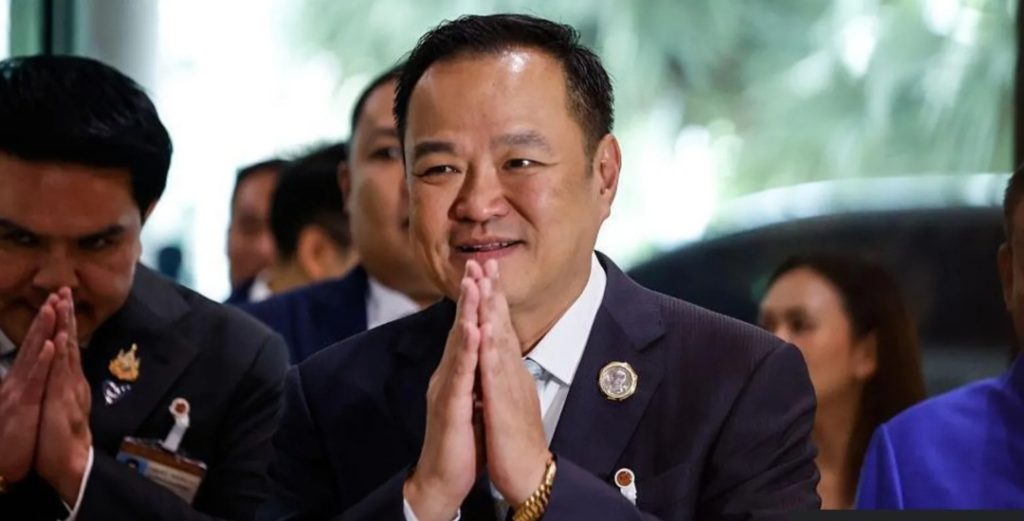
Esther Imonmion
Thailand’s parliament has elected Anutin Charnvirakul as prime minister, the third person to hold the post in just two years, following the dismissal of Paetongtarn Shinawatra by the Constitutional Court.
Paetongtarn, heir to Thailand’s most powerful political dynasty, was removed last week over alleged ethical violations in handling a border dispute with Cambodia. Her ouster dealt a heavy blow to the Shinawatras, who have dominated Thai politics since 2001 but remain locked in conflict with the conservative-royalist establishment.
Anutin, 58, leader of the Bhumjaithai Party, secured the premiership after breaking from the Pheu Thai-led coalition and winning support from rival blocs, including the reformist People’s Party. His party controls just 69 of parliament’s 500 seats, forcing him into fragile alliances.
The People’s Party, the largest in parliament but barred from forming a government due to court rulings, agreed to back Anutin only on strict conditions: new elections within four months and a commitment to amend the military-drafted constitution. It has pledged support only for the government’s survival, not its legislative agenda.
Anutin inherits a divided political landscape marked by frequent court interventions and military coups. Both Paetongtarn’s father, former prime minister Thaksin Shinawatra, and his sister Yingluck were previously deposed by the army in 2006 and 2014.
The latest upheaval follows mounting speculation over Thaksin’s own fate. He left for Dubai this week, citing medical treatment, but pledged to return for a court hearing on September 9 that could send him back to prison.
A wealthy businessman and seasoned dealmaker, Anutin is best known for liberalising Thailand’s marijuana laws as health minister in 2022. A licensed pilot who owns three aircraft, he now faces the challenge of steering Thailand out of another political crisis—under the pressure of a ticking four-month clock.
